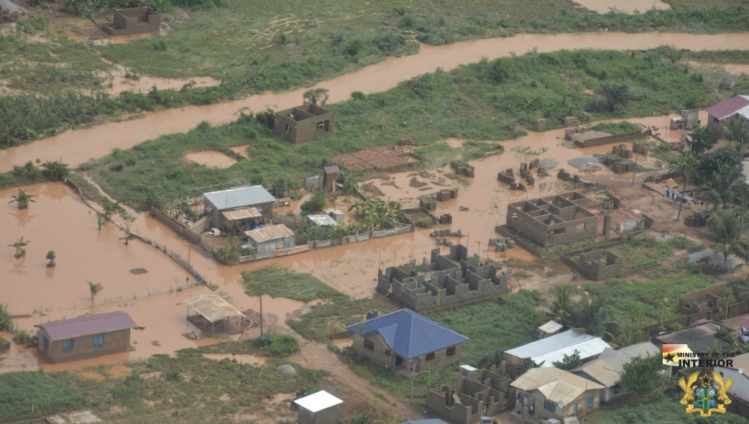It is emerging that the $100 billion promised African countries annually by the developed nations to mitigate the negative impact of climate change may not be honoured.
Though African countries are contributing less than 3 percent of the world's emissions, the continent is rather bearing the brunt.
The G-20 accounts for 80% of greenhouse gas emissions but poorer countries, especially in Africa, bear the brunt of climate change.
Rich nations pledged in 2009 to give developing countries $100 billion a year to help them deal with climate change, but the target date was pushed back to 2023 at the beginning of the COP26 summit.
But at Ghana’s official side event in the ongoing climate change conference in Glasgow, one of Ghana’s negotiators from the Ministry of Finance, Foster Aboagye-Gyamfi revealed how the G20 countries are making a U-Turn on their pledge.
According to Mr Aboagye-Gyamfi, many of the rich countries are reneging on their commitment to providing soft financing and are rather focusing on a push for loans "which I think is not helping very much."
"Because, it means the developing countries would have to be paying for these things in future and I'm sure it will deter the developing countries from achieving much from there," he said.
Also at this event was the Executive Director of the Environmental Protection Agency, Dr. Henry Kokofu who revealed that Ghana is in need of about $15 billion to help implement its strategies on dealing with climate change challenges.
"Ghana requires between $9.3 billion and $15.5 billion of investment in order to fully realise the implementation of the 47 Nationally Determined contribution measures from 2020 to 2030. Out of that, 3.9 billion would be needed to implement the 16 unconditional programmes of action till 2030.
"The remaining 5.4 billion for the title one conditional programmes of vaccine would be mobilised from the public, international and private-sector sources, and carbon markets. And here again, it is important to note that the current capital markets point clearly to the fact that the private sector holds almost two-thirds of the funding sources," he added.
Latest Stories
-
Gold Fields Ghana Foundation challenges graduates to maximize benefits of community apprenticeship programme
2 mins -
GBC accuses Deputy Information Minister Sylvester Tetteh of demolishing its bungalow illegally
13 mins -
Boost for education as government commissions 80 projects
24 mins -
NAPO commissions library to honour Atta-Mills’ memory
35 mins -
OmniBSIC Bank champions health and wellness with thriving community walk
37 mins -
Kora Wearables unveils Neo: The Ultimate Smartwatch for Ghana’s tech-savvy and health-conscious users
41 mins -
NDC supports Dampare’s ‘no guns at polling stations’ directive
44 mins -
Police officer interdicted after video of assault goes viral
1 hour -
KNUST’s Prof. Reginald Annan named first African recipient of World Cancer Research Fund
1 hour -
George Twum-Barimah-Adu pledges inclusive cabinet with Minority and Majority leaders
2 hours -
Labourer jailed 5 years for inflicting cutlass wounds on businessman
2 hours -
Parliament urged to fast-track passage of Road Traffic Amendment Bill
2 hours -
Mr Daniel Kofi Asante aka Electrician
2 hours -
Minerals Commission, Solidaridad unveils forum to tackle child labour in mining sector
2 hours -
Election 2024: Engagement with security services productive – NDC
2 hours

